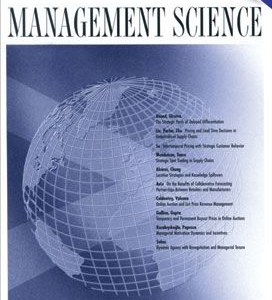
Delfgaauw, J., Dur, R., Onemu, O. and Sol, J. (2022). Team Incentives, Social Cohesion, and Performance: A Natural Field Experiment Management Science, 68(1):230--256.
-
Affiliated authors
-
Publication year2022
-
JournalManagement Science
We conducted a field experiment in a Dutch retail chain of 122 stores to study the interaction between team incentives, team social cohesion, and team performance. Theory predicts that the effect of team incentives on team performance increases with the team{\textquoteright}s social cohesion because social cohesion reduces free-riding behavior. In addition, team incentives may lead to more coworker support or to higher peer pressure and thereby, can affect the team{\textquoteright}s social cohesion. We introduced short-term team incentives in a randomly selected subset of stores and measured for all stores, both before and after the intervention, the team{\textquoteright}s sales performance and the team{\textquoteright}s social cohesion as well as coworker support and peer pressure. The average treatment effect of the team incentive on sales is 1.5 percentage points, which does not differ significantly from zero. In line with theory, the estimated treatment effect increases with social cohesion as measured before the intervention. Social cohesion itself is not affected by the team incentives.